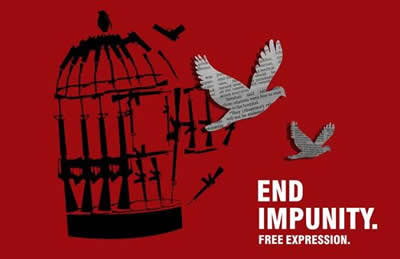Get a job empowering women
Posted on November 24th, 2011 by Bev Clark. Filed in Uncategorized.Comments Off
Just Associates Southern Africa: Programme Manager
Deadline: 25 November 2011
JASS (Just Associates) is an international community of activists, scholars, and popular educators that works to strengthen and leverage the voice, visibility, and collective organising power of women to create a just world.
JASS Southern Africa seeks to appoint a Programme Manager, based in Cape Town. There is, however, an option for candidates to be based in Zimbabwe, Malawi or Zambia where the bulk of its work is located.
This is a great opportunity for an African professional who is deeply committed to strengthening grassroots activist leadership and organising and who brings passion, demonstrated leadership, interpersonal and organisational skills. S/he will offer relevant strategic and programmatic experience as well as some experience with participatory training and grassroots organising.
In Southern Africa (SNA), JASS’ strategy is to strengthen and mobilise women’s activist leadership to retool and rebuild women’s movements to address practical needs and change norms, institutions and policies that perpetuate inequality and violence. The programme involves training, organising, social media, documentation and strategic action in Zambia, Zimbabwe and Malawi. Now in its fourth year, the programme is driven by a regional team and a unique regional alliance of LGBT activists, progressive religious leaders living with HIV/AIDS, youth organisers and ICT feminist activists to maximise their reach and impact on women’s rights and lives.
While decision-making relating to the overall JASS SNA strategy, planning and organisational development lies with the Regional Coordinator, the Programme Manager will work closely with the Regional Coordinator and part-time organisers and consultants to facilitate country processes and communications, ensuring that relationships, programmes and the regional partnerships are on track and in line with JASS SNA’s mission and strategy.
Responsibilities:
Provide leadership, mentoring and support to the broader JASS SNA community of women activists across the region virtually and in person;
Coordinate and backstop country-level processes in Zambia, Malawi and Zimbabwe, including overseeing the planning, design, facilitation and documentation of activities and events;
Establish/coordinate consultative processes for designing, planning and implementing JASS SNA strategies and programmes in line with JASS’ overall mission and strategic priorities;
Refine and adjust plans as needed in accordance with opportunities and funding;
Develop/consolidate regional systems for documentation, reporting and monitoring in close coordination with the regional team and global JASS;
Maintain regular communication with the regional team and partnership to ensure programmes, relationships and deliverables are on track including regular check-ins with regional staff and partners to ensure continued ownership;
Identify and pursue strategic opportunities to deepen and broaden the impact of the JASS SNA movement-building process;
At times, represent JASS SNA and involve other regional team members and JASS SNA community in representing JASS in the region at important events and among a wide variety of people and organisations who are potential allies and donors.
Requirements:
Minimum of 8-10 years of demonstrated experience with managing programmes and people and administering projects related political activism and/or advocacy on women’s rights, HIV/AIDS young women leadership, social movements and related issues;
Minimum of 8-10 years of demonstrated programme management experience related to political activism, women’s rights and HIV/AIDS in Southern Africa;
Experience writing about women’s organisation and social justice issues strongly preferred;
Knowledge on policy issues related to the core themes;
Commitment to facilitative leadership and democratic management principles;
Experience in promoting teamwork and working collaboratively in a multigenerational, multicultural context;
Ability to think critically and politically, and problem-solve with minimal resources;
Ability to operate in a virtual, global organisation where e-mail and phone communication is paramount;
Written and oral communication skills;
Ability to write for a variety of audiences and purposes;
Experience working effectively with limited budgets and a corresponding ability to draft and implement budgets for regional projects and initiatives;
Ability to think through staffing needs and priorities;
Comfortable building and developing organisational processes for a young organisation with a unique and flexible structure that is continually evolving in careful and well thought-out strategic stages;
Excitement about, and commitment to, bringing diverse interests together across boundaries of race, class, gender, sexuality and nationality in collaborative and creative ways;
Sensitivity/awareness of difference, power and privilege as they shape interaction and of multigenerational processes;
Comfortable dealing with and navigating the complex politics between traditional NGOs and women’s rights groups;
Ability to plan on the move and to respond and adjust to shifting constantly priorities;
Experience organising and facilitating events.
To apply, submit a CV and motivation letter to Maggie Mapondera at maggie [at] justassociates [dot] org or fax to: +1 202 232 4715.
NGO Pulse Portal.
No phone calls will be accepted.
JASS is an equal opportunity employer. Applicants with diverse backgrounds and members of the queer/transgender community are strongly encouraged to apply.
For more about the Just Associates, refer to www.justassociates.org
Sour: NGO Pulse Portal










